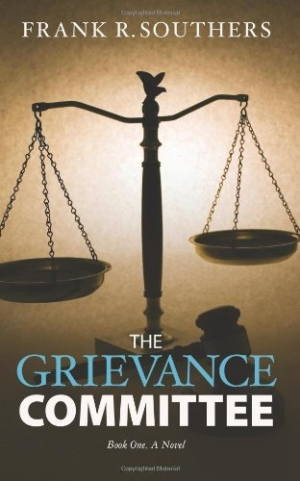The Grievance Committee--Book One
“The Grievance Committee—Book One“ illustrates what can happen when a person messes with Texas. More specifically, with Texan attorneys.
Convicted Catholic shoplifter Alexandra Jimenez accuses her public defender, Jose Quiroz, of violating disciplinary rules by coercing her into having sex with him under threat of having her probation jeopardized. Jose claims his client is a lover scorned, that their relationship was consensual, and that he told his client no falsehoods. Alexandra and Jose admit to being in love at one point, and attorney-client affairs are not prohibited under Texas disciplinary rules for lawyers. Matters become more complicated with the involvement of two other clients who say Jose tricked them into sex, as well as tension among grievance committee members, an adulterous judge, lawyers with an old score to settle, and Jose’s Catholic priest.
As a native of San Antonio and a former member of many Texas grievance committees, Frank R. Southers uses his knowledge and experience to successfully introduce readers to the intricacies of the state’s disciplinary system for lawyers. Southers uses language that is accessible to an audience unschooled in law, and he reiterates the key points of the system without becoming repetitive or condescending.
Fortunately, the constant use of legalese does not impede character development. Readers will sympathize with the womanizing Jose and the vindictive Alexandra because Southers does a superb job of showing how each feels victimized by the grievance.
Southers also prevents the treacherous Catholic priest from becoming a cliché by juxtaposing his involvement against Alexandra’s constant prayers to her patron saint. Doing so, Southers provides fascinating examples of the intersection of law and religious faith. The novel’s lack of clearly defined heroes and villains heightens the suspense; readers root for everyone while turning the pages to find out who comes out on top.
At points, however, the plot does become bogged down with Southers’s explanations of the minutiae of Texas justice. In addition, providing a backstory for each and every person on the two grievance committees is, at times, a mental overload. It becomes nearly impossible to keep all of the secondary characters straight.
The novel is also unnecessarily dense with dialogue. Often, it is difficult to tell who is speaking because conversations extend for pages without designators like “Jose said” or “Alexandra stated.” The inclusion of more descriptive paragraphs and dialogue tags would greatly improve the flow of the story.
All in all, though, Southers’s first novel represents a strong debut.
Reviewed by
Jill Allen
Disclosure: This article is not an endorsement, but a review. The publisher of this book provided free copies of the book and paid a small fee to have their book reviewed by a professional reviewer. Foreword Reviews and Clarion Reviews make no guarantee that the publisher will receive a positive review. Foreword Magazine, Inc. is disclosing this in accordance with the Federal Trade Commission’s 16 CFR, Part 255.

